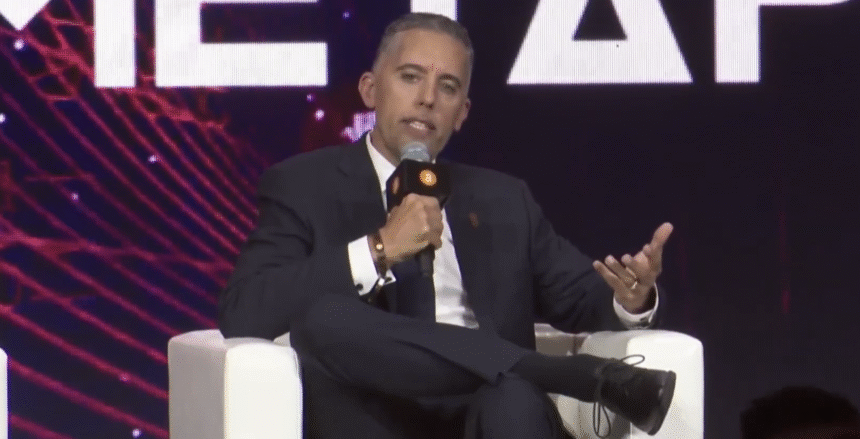In a dynamic market update, Asia Morning Briefing highlights recent developments in cryptocurrency and traditional financial markets. The focus today is on Bitcoin treasury companies, which are grappling with the critical question: can they generate returns that surpass Bitcoin itself, or should investors bypass these firms and invest directly in Bitcoin?
Matt Cole, CEO of Strive Asset Management, emphasized this sentiment during a recent panel at BTC Asia in Hong Kong. He articulated that the rationale for engaging in treasury strategies is only justified if they can outpace Bitcoin’s performance. He advised potential investors that opting for a Bitcoin ETF might be the simpler route if treasury strategies do not prove superior.
Cole, who has a notable history of advocating for Bitcoin by companies like GameStop, elaborated on strategies for achieving alpha through alternative frameworks. He highlighted the evolving landscape of financing, suggesting a transition from convertible securities to perpetual preferred equity could provide an avenue to leverage. However, he pointed out that achieving significant scale—specifically, reaching $1 billion in capital—is paramount for Bitcoin treasury firms, as this milestone lowers financing costs and facilitates larger teams and IPOs. He cited MicroStrategy’s Michael Saylor, reinforcing the daunting challenge of achieving this scale in the current economic climate.
In contrast to Bitcoin, Cole criticized Ethereum and other cryptocurrencies by labeling them as too similar to equities, prone to shifting monetary policies. He argued that Bitcoin is unique due to its fixed supply, making it the only feasible asset for a leveraged treasury strategy designed for long-term compounding.
Andrew Webley from The Smarter Web Company, a U.K. designer publicly listed with Bitcoin in its treasury, offered a different perspective. He acknowledged that smaller firms might find it easier to raise capital but stressed the importance of transparency and risk communication. He articulated that establishing clear guidelines and risk disclosures are paramount in reinforcing trust with investors, thereby enhancing the attractiveness of a Bitcoin treasury model.
The panel highlighted a broader debate for investors: whether to back firms with aggressive strategies aiming to outshine Bitcoin or to choose those that promise steady growth while maintaining clarity with stakeholders. Despite differing viewpoints, all panelists concurred that Bitcoin’s position as a treasury asset is gaining traction, especially as fiat currencies face ongoing devaluation pressures.
Market movements reflect the undercurrents of this discussion. Bitcoin is trading above $110,500, experiencing a minor dip but exhibiting signs of accumulation with robust demand near vital support levels, suggesting bullish sentiment among market players. Ethereum, meanwhile, is trading around $4,300, with a slight decline of 0.6%, likely influenced by ongoing institutional interest and ETF inflows that bolster its long-term outlook.
In the wider financial landscape, gold is nearing record highs, driven by expectations of rate cuts and an uptick in demand for safe-haven assets, although it faced slight profit-taking recently. The Nikkei 225 has shown a strong rally, bolstered by substantial foreign investments and buoyed by Japan’s transition away from prolonged stimulus measures. Meanwhile, the S&P 500 rose 0.83%, hitting a record 6,502.08, as traders brushed aside weaker private job data, looking ahead to upcoming employment reports for insights into potential rate cuts and recession risks.
In other developments within the crypto arena, World Liberty Financial has blacklisted an address associated with Justin Sun, linked to $107 million in assets, while the SEC is ramping up its pro-crypto initiatives with a series of digital asset rulemakings. The NFL opener has also generated interest in the betting market, drawing substantial attention on platforms like Polymarket.






